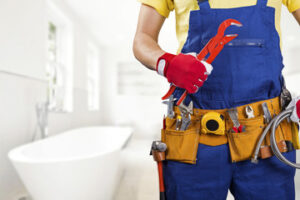When choosing a replacement window, consider windows designated for new construction. They have nail fins that allow them to be nailed directly into studs in your home’s framing.

Insert windows are installed in the opening of an existing window frame, preserving exterior trim and interior sills. This allows you to install a more energy efficient window without replacing your entire frame. Reach out Window Replacement Ellicott City, MD for comprehensive assistance.
1. Cracked or Damaged Panes
Whether the result of an impact or the natural aging of your windows, cracked glass panes are not only unsightly but also pose safety risks and let cold air or bugs into your home. While it’s possible to repair some cracks, replacing them is often a better option.
Generally, the repairability of your window’s glass depends on the size, type and location of the crack. Small, shallow cracks that are confined to the surface of the glass are typically the best candidates for repair. These aren’t likely to significantly weaken the structure of the window, and they can usually be kept at bay with a bit of tape.
However, it’s important to remember that these solutions are only temporary and won’t last long if exposed to high levels of stress. For example, a crack that runs the full width of the pane can be protected with plastic film that’s designed to prevent UV damage. However, this isn’t a good solution for impact cracks or for cracks located in high-traffic areas.
For a longer-lasting and more effective solution, consider using heavy-duty tape to seal the crack. A single strip of masking or duct tape along the entire length of the crack should be sufficient to keep superficial cracks, like those caused by temperature fluctuations, from worsening.
More significant cracks can be repaired with adhesives marketed for use on auto glass. These are available in pre-cut strips that can be applied to the glass quickly and easily. Once cured, they’ll help prevent moisture from penetrating the crack and provide a more resilient barrier against weather damage.
Cracks that spread across the glass in a spiderweb pattern can’t be repaired with these types of temporary fixes. The cracks will only become more extensive over time, and the structural integrity of the glass can be compromised. This can leave the window vulnerable to shattering under pressure or during extreme temperature changes.
Another common issue with cracks is the loss of energy efficiency. Double- and triple-pane windows have an insulated gas fill between the frames that helps keep warm air inside in winter and cool air outside in summer. When one of the glass panes breaks, this gas escapes and your energy bills will increase.
2. Old Paint
In addition to the glass, windows are made up of a variety of components, including frames and sills. Over time, these pieces can become weathered and rusted. Repainting these areas is an easy way to spruce up a home’s appearance. While sanding is typically the first step in the process, primer can help smooth the surface and provide a base that paint can adhere to effectively. Primer also helps reduce the number of coats needed to achieve a well-defined finish.
Window replacement isn’t always necessary, and in many cases repair may be a more cost-effective option. If your windows are not as energy-efficient as they used to be, it’s likely that their seals have failed and are allowing cold or hot air to enter the house. Changing out your existing double-paned windows for new, efficient units will dramatically cut your energy bills and improve your home’s comfort.
The best types of windows to use in your home depend on the existing conditions and features of each room. For instance, if your window sills have rotted through and cannot be repaired, you will need to replace the entire frame. Window and door dealers can assist you in evaluating your current situation and selecting the most appropriate type of window for your home.
New construction windows, which include a frame and trim, are available in an array of styles, materials, and colors. They are often more affordable than replacement windows, which must match the size and shape of your current window opening.
Replacement windows come in a range of configurations, from simple sash packs that replace the old sashes but leave the existing exterior and interior window frames and trim in place to new-construction windows that require removal of all the existing components.
Wood replacement windows are a popular choice among value-conscious consumers who prefer a natural look, while vinyl windows are available for those who want to maximize energy efficiency. Additionally, homeowners who want to boost their home’s curb appeal can choose from a variety of attractive finishes and designs for the exterior trim and casing.
3. Water Damage
Whether it’s water leakage, mold, or soft wood framing, moisture damage around windows needs to be repaired as soon as possible. Moisture can get into the house through cracks in the window and then rot wall studs and other wood framing members over time. If the rot isn’t dealt with, it can cause costly and dangerous structural damage to your home.
If you see water leaking in around your window, first make sure it is safe to enter the area by shutting off power and wearing protective gloves to handle broken glass. Then, cover the area with heavy plastic or a tarp and redirect water flow away from the window. You can also use fans and dehumidifiers to dry the area and reduce moisture.
Moisture can also enter through clogged drainage holes (also known as weep holes) at the bottom of your window frame. These holes are designed to drain water that gets past the seals but can become clogged with dirt and debris over time. Check the weep holes regularly and clean them out with a wire coat hanger or similar tool to prevent moisture from finding its way into your home.
Other signs of moisture include black spots of fungus growing in the area around your windows. Fungus thrives in moist areas and can quickly discolor the surrounding wood and drywall. It can also decrease indoor air quality and worsen allergy symptoms for people in the house.
Moisture damage can also affect your window’s hardware, such as hinges and handles. These can become stuck or difficult to open and close as the caulking wears down. If this happens, try using some candle wax to help lubricate them. You can also use silicone grease, automotive grease, or petroleum jelly to lubricate your window hardware. If this doesn’t fix the problem, you may need to replace the hardware or have a professional replace it during your window replacement project.
4. Misaligned Frames
Misaligned frames need to be replaced during window replacement because they can make a room feel uncomfortable or even cause health issues. It is important to look at the frame from a different angle before buying, to ensure that it is a good fit. Hold the frame up to the light and tilt it so that you can see both rims. The bottom rims should be visible at the same time; this will help you determine whether there is a twist in the bridge or another structural issue.
There are many different window types available, depending on the style of your home and budget. The best options will match your home’s current style, provide energy efficiency, and be long-lasting and durable. Some of the most common window materials are aluminum, vinyl, and wood. Talk to your window professional to learn more about the options for your home and discuss what is best for your specific climate and conditions.

